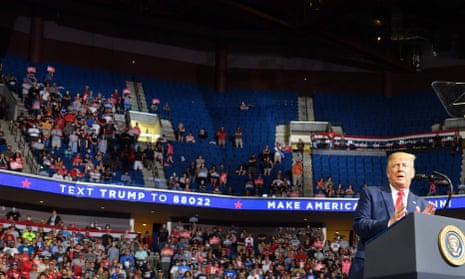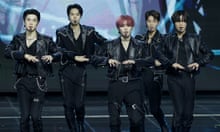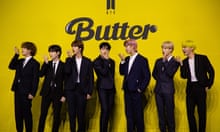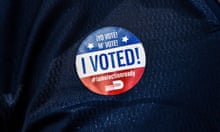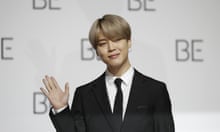It started as an attempt to blunt the impact of the Black Lives Matter movement but it ended in derision. When the #WhiteLivesMatter hashtag appeared on Twitter, its unintended descent into ridicule was driven not by hardened political activists but by a loose coalition of young people worldwide united by their love of South Korean pop music.
Those hoping to hold back the tide of support for Black Lives Matter amid global protests against the police killing of George Floyd could only hover helplessly over their keyboards as K-pop “stans”, slang for obsessive fans, drowned them out by flooding Twitter with video clips and memes of their favourite artists, many accompanied by anti-racist messages.
Their efforts met with approval from the world’s best-known K-pop band, BTS. “We stand against racial discrimination. We condemn violence. You, I and we all have the right to be respected. We will stand together. #BlackLivesMatter,” the band told their 26 million followers on Twitter.
Having taken the sting out of an online racist backlash, K-pop fans mustered their forces again, this time to humiliate Donald Trump.
His campaign chair boasted that nearly a million people had requested tickets to attend the US president’s rally in Tulsa, Oklahoma, last weekend, but he ended up speaking in front of about 6,200 supporters and organisers were forced to close an “overflow” area outside.
A large number of TikTok users and K-pop fans, it transpired, had registered for tickets but they had no intention of attending. The result? Lots of empty space in the 19,000-seat BOK Center arena and a lonely walk home across the South Lawn for a deflated Trump.
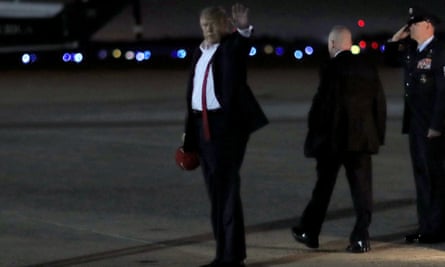
It is unclear how big an impact the campaign had on the low turnout, but many online users believe it was a factor.
One K-pop fan said she had used false contact details to register for two spots. “I heard it first from just BTS fans and then once I saw that it got to TikTok, I was like, oh yeah, this is going to blow up,” said “Raq”, a 22-year-old student and Democratic voter in Minnesota.
The hijacking of a divisive Twitter hashtag and the humiliation of a US president were demonstrations of a social activism that runs throughout the K-pop community, particularly in the US, according to CedarBough Saeji, a visiting assistant professor in Asian languages and cultures at Indiana University.
“American fans of K-pop, and there are many of them, are outward-looking, open-minded, culturally curious and supportive of LGBTQ rights,” she said. “K-pop is not particularly political, but it is socially engaged.
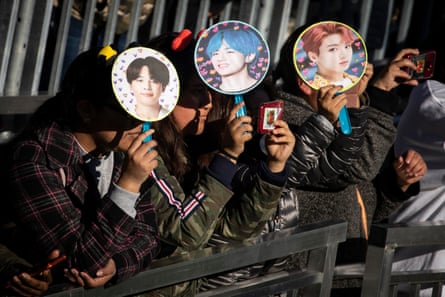
“Stars donate to educational and social justice causes, and fans follow that lead to volunteer or donate for issues like education for low-income families, care for the elderly or environmental protection.”
Brad Parscale, Trump’s campaign manager, blamed the Tulsa debacle on interference from “radical protesters”, a description that might not be far from the truth, according to Jay Song, a senior lecturer in Korean Studies at the University of Melbourne.
“BTS fans have always been serious about politics and socioeconomic issues, ranging from youth unemployment, mental health, social and economic inequality and sexual minorities,” Song said.
K-pop fans’ optimism mirrors a social awareness among the artists themselves. After BTS donated $1m to Black Lives Matter, a fan collective charity known as One in An ARMY after the name adopted by the group’s followers matched the sum.
BTS and other groups have also donated to other social and humanitarian causes, including Syrian refugees and campaigns to end violence against children.
“Several K-pop stars have significantly influenced the thinking and behaviour of young music fans by conveying meaningful messages in lyrics about issues such as social injustice, the social divide and corruption,” said Jin Dal-yong, a professor at the school of communication at Simon Fraser University in Canada.
There appears to be less enthusiasm, however, for global activism among fans in the country of K-pop’s birth, where admiration for the artists’ altruism comes with a reluctance to interfere in politics. Some fan sites have banned discussions on the subject.
The campaign to support Black Lives Matter was widely welcomed, particularly after BTS’s donation, but some South Korean fans said they were uncomfortable about taking on the role of Trump’s online nemesis.
“BLM was understandable as it was about human rights, but it makes me uncomfortable to see my idols pop up in Trump-related news,” one wrote on Weverse, BTS’s official fan community app.
K-pop fans and other online activists who coalesce around single issues could become a significant new force, according to Song. In recent days, copycat campaigns have appeared, including one that involved Twitter users transforming a #JapaneseLivesMatter hashtag into a photographic tribute to Japanese cuisine.
“K-pop fan raids on social media platforms is something we will see more of in the future,” Song said. “Young people are taking out their anger and frustration through a peaceful online social movement. They feel empowered, and their message resonates online across different generations, locations, nationalities and ethnic backgrounds.”
Agencies contributed reporting to this article
